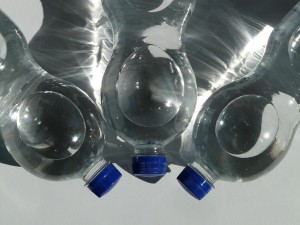
Lithium is a light metal found in rocks of volcanic origin, across which water may flow; gathering up some trace elements, which then ends up in some drinking water. Scientists have believed since the nineteenth century that this water has health benefits and could help fight infectious diseases such as malaria.
Studies have shown that roundworms live up to 36% longer when given lithium chloride in high doses; too high for humans though. More recent studies have shown that lower doses, given throughout their life, can extend their lives.
Lithium has been used for decades to treat psychiatric conditions such as bipolar disorder since 1949, when Australian psychiatrist John Cade published studies showing that lithium could be used to treat manias and stabilise bipolar disorders. Cade initially thought that bipolar disorders were caused by a shortage of lithium, which led to ‘nutri-criminological’ studies; this revealed that, where drinking water contained more lithium, there were lower serious crime rates and fewer suicides.
Mineral waters such as Evian and Vichy were originally also promoted on the basis of their slightly higher lithium concentrations. A popular soda, 7UP, also originally contained lithium until Cade discovered that higher concentrations of lithium were toxic, so the manufacturer removed lithium from its product.
Japanese researchers at Oita University and Hiroshima International University measured the concentration of lithium in the drinking water in 18 districts and discovered that tap water levels of lithium were inversely associated with overall mortality adjusted for age and gender.
A study, Lithium in Drinking Water and Thyroid Function, published in Environmental Health Perspectives in 2011 however stated that “Lithium can cause underactive thyroid in people who use the drug to treat depression. New evidence suggests that lithium in drinking water may have the same effect on thyroid function.â€
It seems that the jury is still out on whether lithium in our drinking water is good or bad, so I will stick to getting my drinking water filtered and from my water cooler, thanks.





